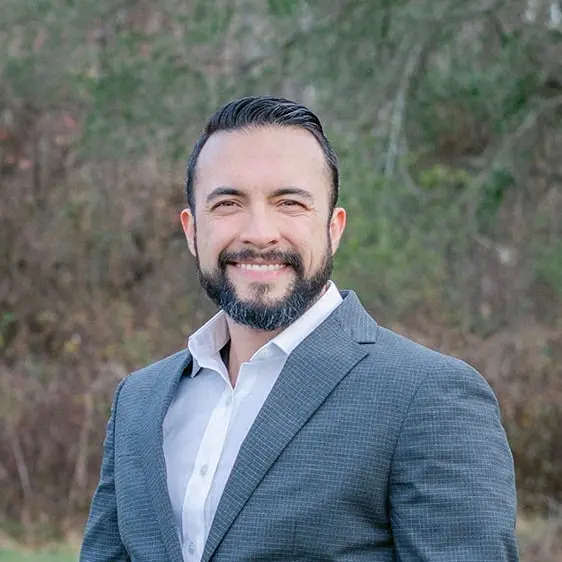Counseling,
That Restores
Counseling that Restores is a specialized counseling service that focuses on restoring the emotional, mental, and psychological well-being of individuals. With a team of trained and experienced counselors, they provide a safe and comfortable space where clients can open up about their struggles and receive tailored support.
The service offers a range of approaches, including cognitive-behavioral therapy, trauma-informed care, and mindfulness-based therapy, among others, to help clients overcome their challenges and live meaningful and fulfilling lives.
About
Counseling That Restores
Are you struggling with personal or relationship issues? Our counseling service is here to help you work through life’s challenges and find peace of mind. Our experienced counselors specialize in a variety of areas, including anxiety, depression, grief, and couples therapy. We use evidence-based techniques to help you identify and address the root causes of your struggles, and provide a safe and supportive environment for you to explore your feelings and thoughts. Our ultimate goal is to help you develop the tools and skills you need to navigate life’s difficulties and live a more fulfilling and happy life. Contact us today to schedule an appointment and take the first step towards a better tomorrow.
Our Staff
Joshua Vallejos
Joshua grew up just outside Louisville, KY. He earned his Bachelor’s degree in counseling and his Master’s degree in Biblical and Pastoral studies. He has been counseling professionally for over six years. It is his delight to see weary, burdened people take the brave step into and through the counseling process. As they do, Joshua has witnessed God do amazing things for their comfort, healing, and growth.
Counseling can be challenging at times, but Joshua approaches it in a supportive way, knowing how to help each individual and couple navigate the challenges at their own pace.
Brittany Hicks
Brittany grew up in Central Florida. She earned her Bachelor’s degree in Outdoor Ministry through Montreat College and her Masters in Biblical Counseling from The Southern Baptist Theological Seminary. She is passionate about helping individuals thrive in life and ministry for the long haul. Brittany desires to walk with others through suffering and the struggles of everyday life by helping them to know themselves and find hope and healing through Christ. Brittany and her husband served as missionaries in Cambodia, and they desire to connect others to God’s work in the nations by effectively equipping and supporting ministry workers. Brittany enjoys coffee, the outdoors, reading, and quality time with friends.
Evan Skelton
Evan Skelton (Mdiv, Denver Seminary) currently serves as the Associate Pastor of The Journey Bayless Church as well as an Adjunct Instructor at Missouri Baptist University, and he is pursuing a Formation Certificate through the CCEF School of Biblical Counseling. Evan and his wife, Grace, have been married for 13 years and are loving the adventure of raising their four children in South County St. Louis. When they catch their breath, you will find them drinking lots of coffee, sharing life with others in their home, renovating something, and often playing a board game.
How does it work?
Identity What Your Struggling With
Identifying struggles: step back, reflect, seek feedback, be honest about strengths/weaknesses.
Reach Out For A Free Consultation
Our team offers a safe and supportive environment to help you overcome mental health challenges. We empower you to feel better and offer a free consultation to get to know you, understand your needs, and answer therapy questions.
Meet Your Therapist
Meeting your therapist can be an opportunity to work through your emotions and challenges with a trained professional in a safe and supportive environment.
Begin Your Restoration Journey
Beginning your therapy journey can be a daunting experience, but it is a brave and important first step towards achieving emotional well-being and finding the support you need to navigate life's challenges.
What Our Clients Are Saying

"Highly recommend Counseling that Restores for a unique and holistic approach to mental health. Friendly staff takes time to listen and uses various techniques, including talk therapy, mindfulness exercises, and art therapy. Helped me understand myself better and cope with triggers."
Theo James

"I thank Counseling that Restores for their support during my difficult time. My therapist created a safe and comfortable environment to discuss my problems. Their approach is compassionate, evidence-based, and individualized. They helped me identify root causes and develop effective strategies. They prioritize healing and restoration. I recommend Counseling that Restores for mental health challenges."
Emilia Munro

"Counseling that Restores was transformative and effective in managing my anxiety and depression. The counselor was knowledgeable, compassionate, and equipped me with practical tools. They combined evidence-based techniques with a holistic approach, creating a safe and respectful environment in which to share my experiences. Highly recommended for mental health support."
Branden Griffiths
we’re here for you
Whether it’s for your mental, physical health, relationships, or any other aspect, we’re here to support you. The journey may seem daunting but remember you are not alone. Restoration is a process, not an event, so be patient and celebrate small victories along the way. Take it one day at a time and don’t hesitate to ask for help. You are stronger than you think and we can get started now!
Request A Callback Today
Make A Donation
Making a donation to Counseling that Restores is a meaningful way to support the mental health of those in need. Counseling that Restores is a non-profit organization that offers affordable counseling services to individuals, couples, and families with limited financial means. By making a donation, you can help fund the cost of therapy sessions for those who may not otherwise be able to access these important services. Your donation can also be used to support the training of new therapists and the creation of outreach programs that work to reduce the stigma surrounding mental health. By making a contribution to Counseling that Restores, you can make a significant difference in the lives of those who are struggling with mental health challenges.












